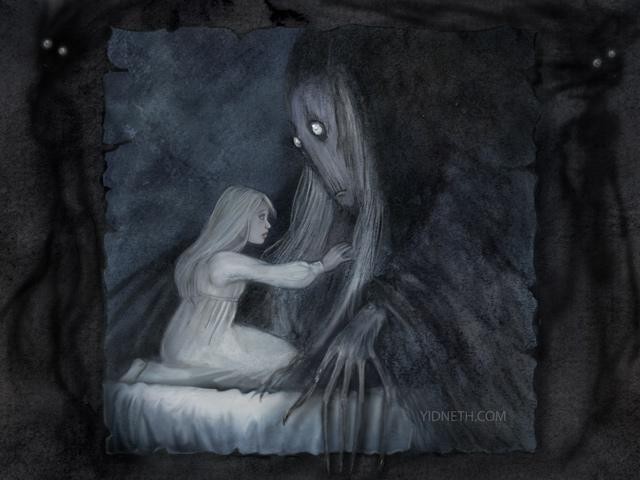Nightmares can be very stressful. We clarify what sleep research has found out about the causes of nightmares, what meaning dreams can have including dream interpretation and what you can do against nightmares.
Almost everyone knows nightmares. We startle at night and for a moment we are still trapped in a negative feeling. Often the memories of frightening dreams lead even the whole next day to a queasy feeling. Today we would like to clarify why you actually dream and have nightmares.
After all, about five percent of all adults and many children regularly suffer from very stressful nightmares. This can go so far that the night sleep suffers or the affected people are very afraid to fall asleep. Here you can find out when you should see a doctor, what you can do yourself against nightmares and what the dreams could mean.
Why and how do we dream at all?
In normal night sleep we go through different sleep phases. In the fall asleep phase, pulse and breathing rate drop. Body and mind continue to change into a state of relaxation. In this moment small disturbances are often sufficient to wake up again. Then follows the light sleep phase, in which we sleep, but almost without eye and muscle movements.
The subsequent deep sleep phase is the phase of deepest relaxation. Sleep researchers assume that it serves psychological and mental recovery. We sleep deeply and calmly. This changes during the REM phase, which is characterized by rapid eye movement (REM). The entire brain activity, measurable in sleep laboratories in the EEG, changes and increases. During this time it corresponds more to the activity that we otherwise only show when we are awake.
As a rule, we go through several cycles of light, deep and REM sleep at night. Such a cycle lasts about 1.5 hours and consists of an average of 50 minutes of light sleep and 40 minutes of deep and REM sleep. Whether we feel rested in the morning depends, among other things, on how many such cycles we have been able to go through undisturbed at night.

When and why do we dream?
Dreams are possible in every sleep phase, even during the fall asleep phase. However, we dream particularly intensively and frequently in the REM phase. This is also the sleep phase in which nightmares can occur. But why do we dream at all? Sleep researchers assume that during sleep we experience things that are important to us and that move us in everyday life.
Some people, however, view dreams differently and interpret them as out-of-body experiences, as meaningful forebodings or as warning signs of unresolved conflicts. In ancient times dreams were often interpreted as contact with God. For example, there was the temple sleep, in which a sick person slept in the temple and hoped to receive a hint of healing possibilities in the dream.
What influences the contents of our dreams?
The well-known German dream researcher Prof. Michael Schredl explains that various factors influence our dreams (2). The shorter an experience was, the more likely it is to appear in our dreams. Even if something stirs us up emotionally and either touches us positively or burdens us negatively, we often dream of it. How we sleep and when we dream also influences the dream contents. But often we also incorporate environmental stimuli such as sounds or light and physical impressions such as hunger, thirst or the urge to urinate into our dreams. Below you can read what the contents of your nightmares could mean.
Interpretation of dreams: What are nightmares and what are their causes?
Nightmares have contents that trigger strong negative feelings. These can be fear or panic, but also disgust or deep sadness. Nightmares lead to the awakening of the dreamer. Often the dream contents are so disturbing or uncanny that it takes some time to get rid of them. In contrast, there is also the fear of night (Parvor nocturnus), where you start up at night with a feeling of fear, but cannot remember a concrete dream.
Why do we have nightmares?
Sleep and brain researchers have not yet been able to clarify the exact causes of nightmares. People with post-traumatic stress disorder (PTSD) are particularly often affected. There are several concrete causes that can trigger nightmares. These include chronic stress and certain medications (antihypertensives, antidepressants) or drugs. People who drink alcohol, especially in the evening before going to bed, can also encourage nightmares. Genetic predisposition can also play a role.
In depth psychology and dream interpretation nightmares are often understood as a warning signal of our subconscious. Carl Gustav Jung, psychiatrist and founder of analytical psychology, described nightmares as shadows.
By this he meant negative aspects of our unconscious. In his opinion, nightmares should disappear when the underlying conflict is solved or repressed problems are dealt with. It is possible that nightmares are indeed often symbolic.


